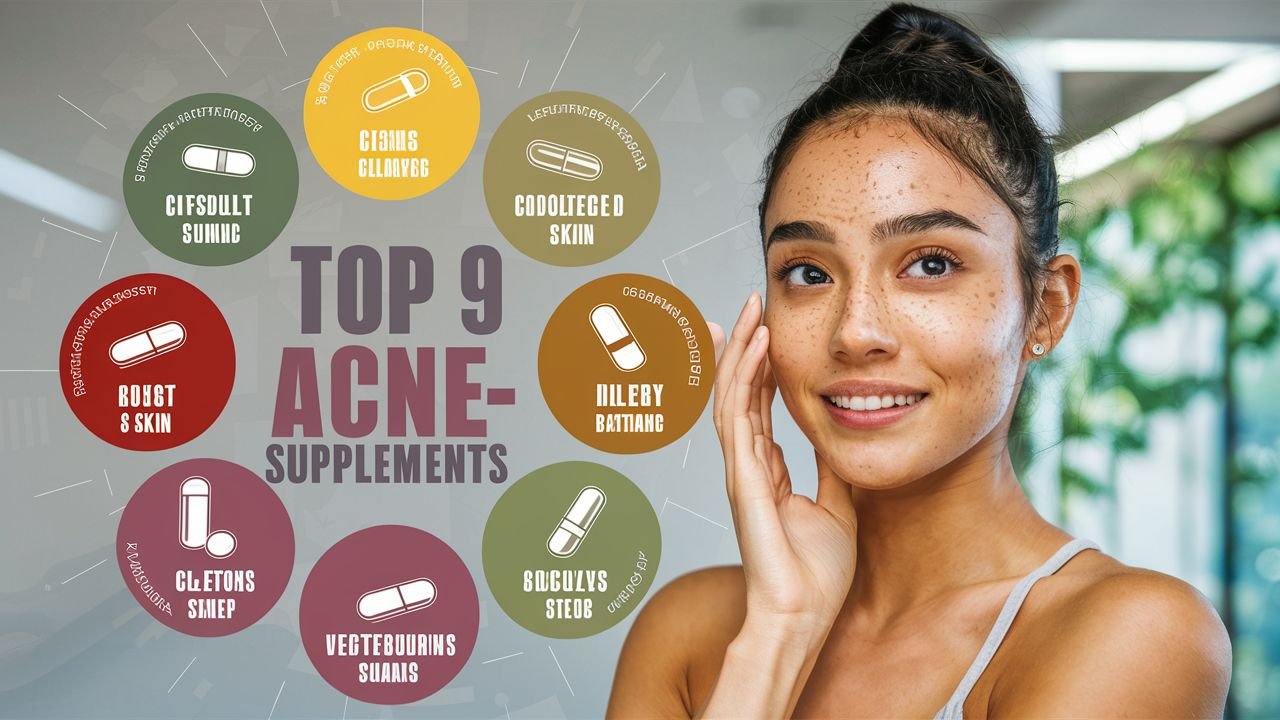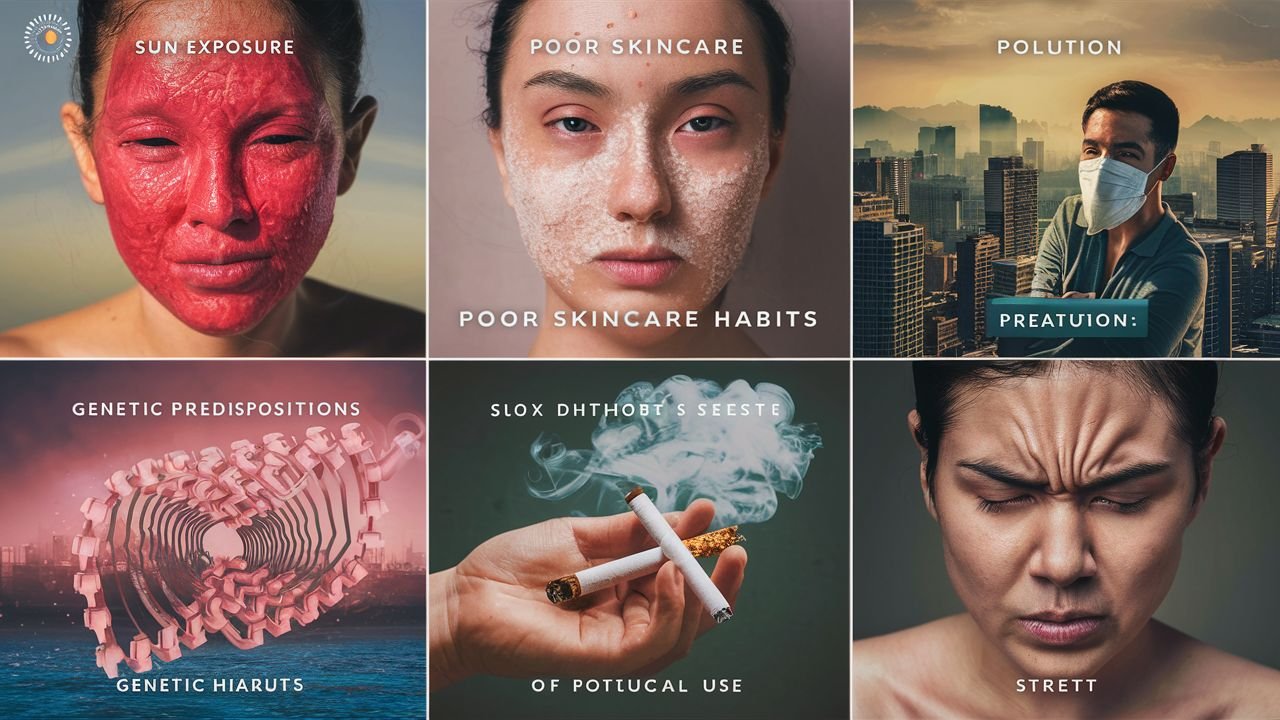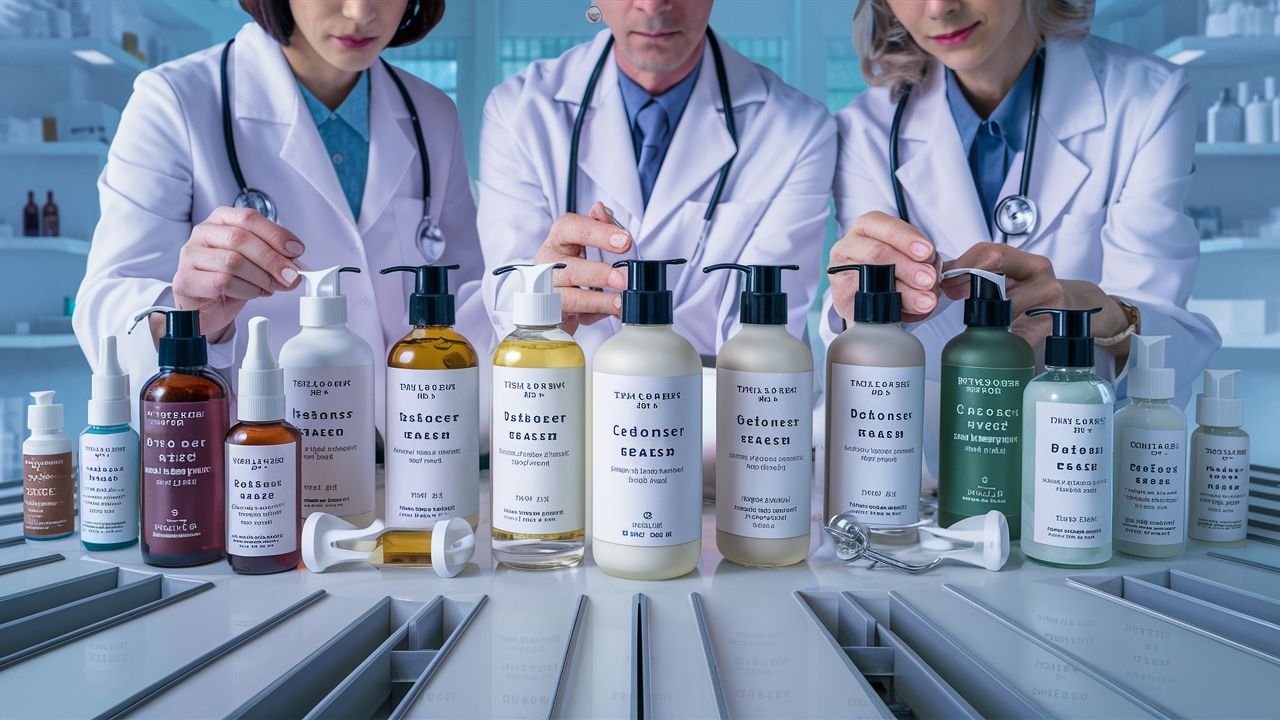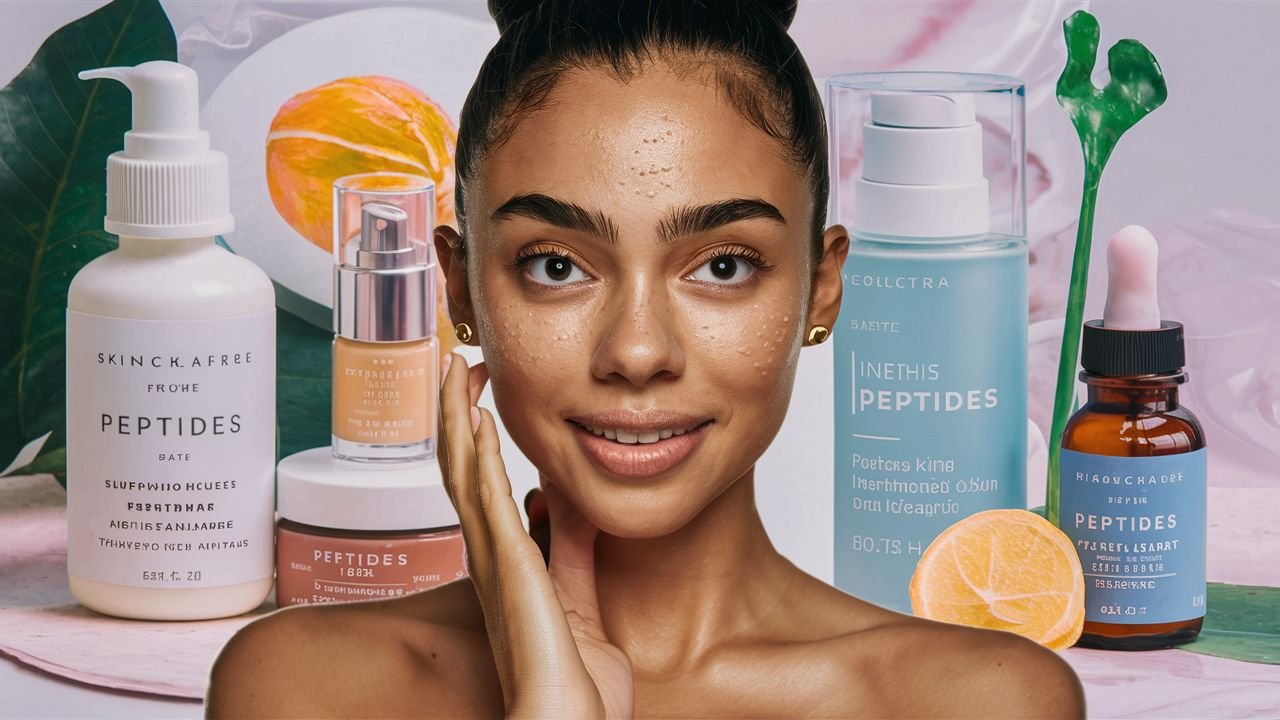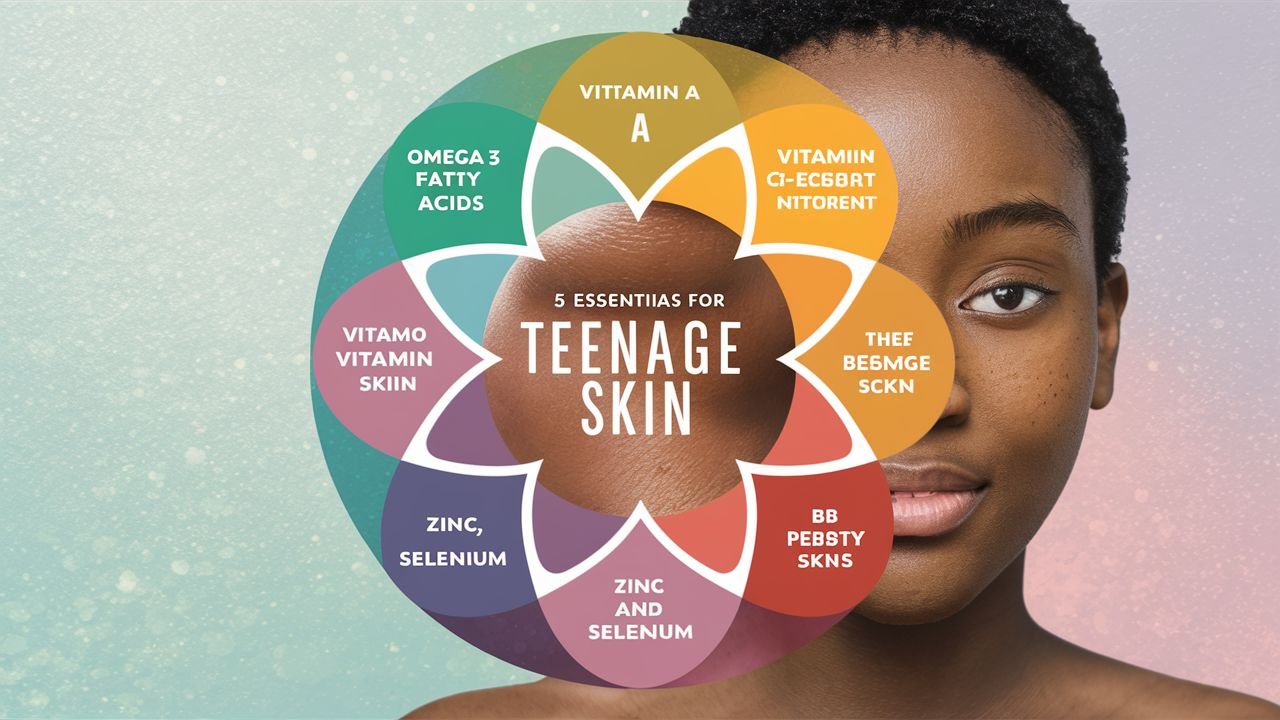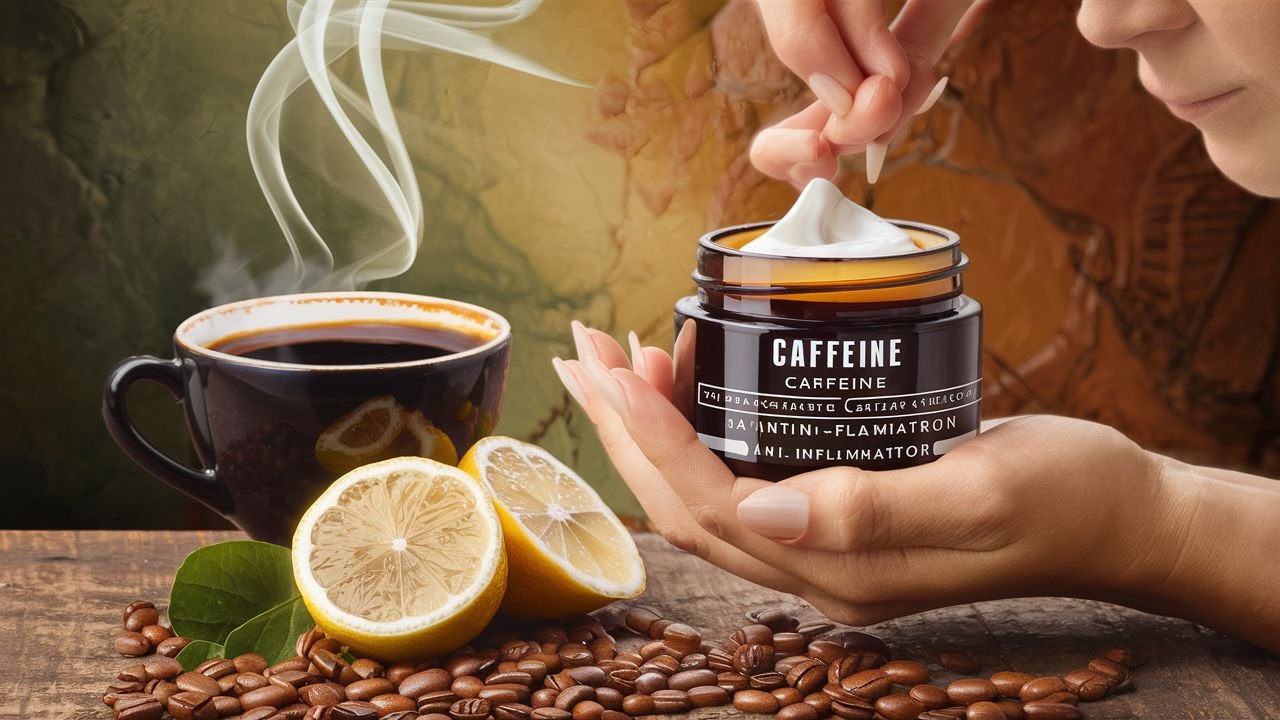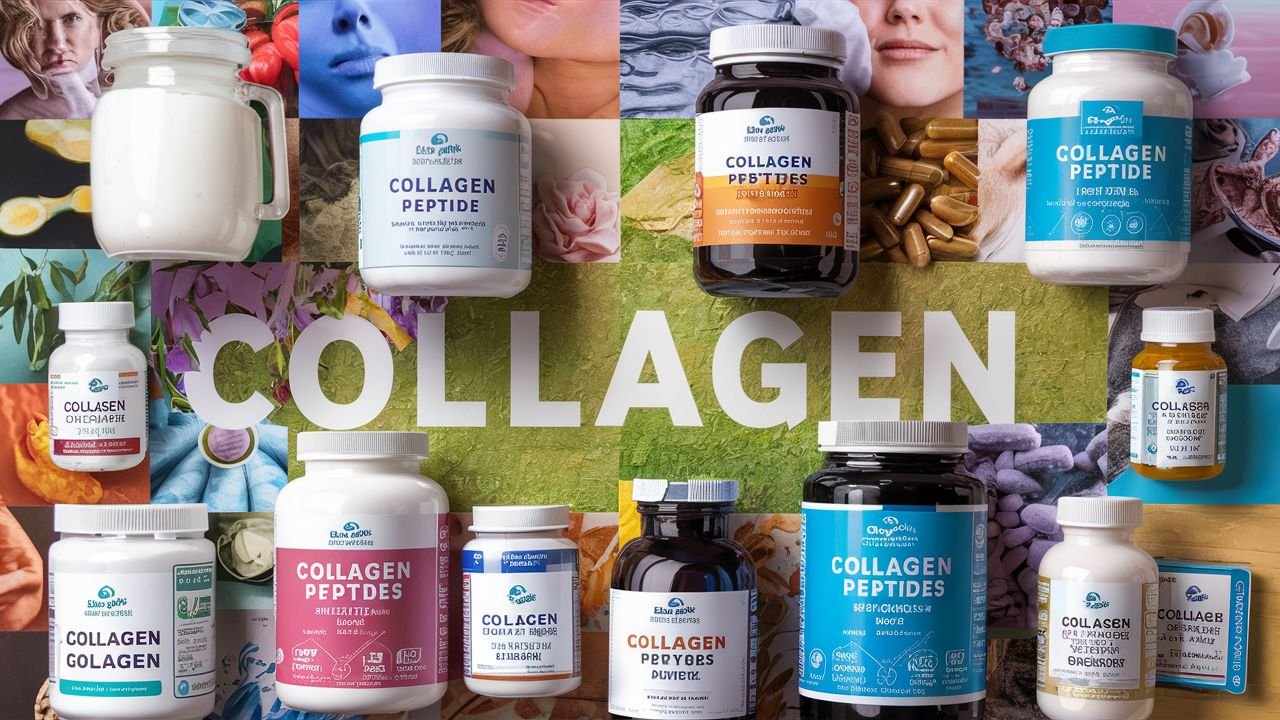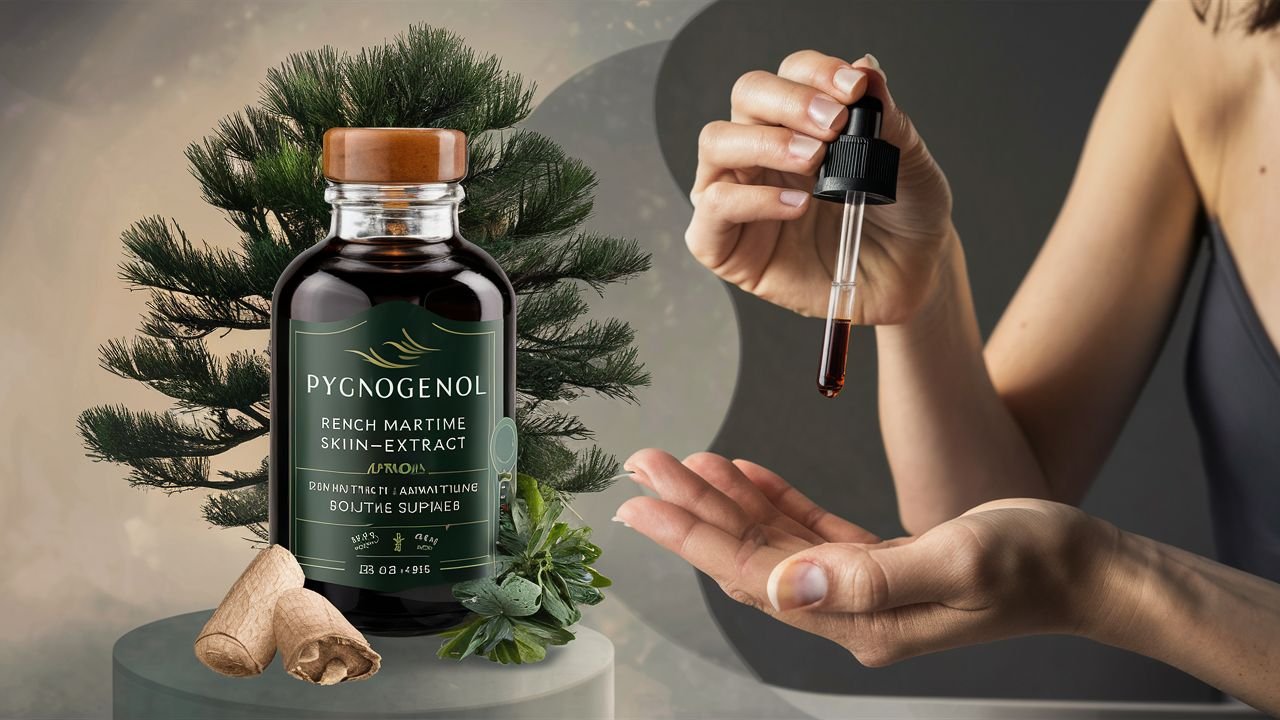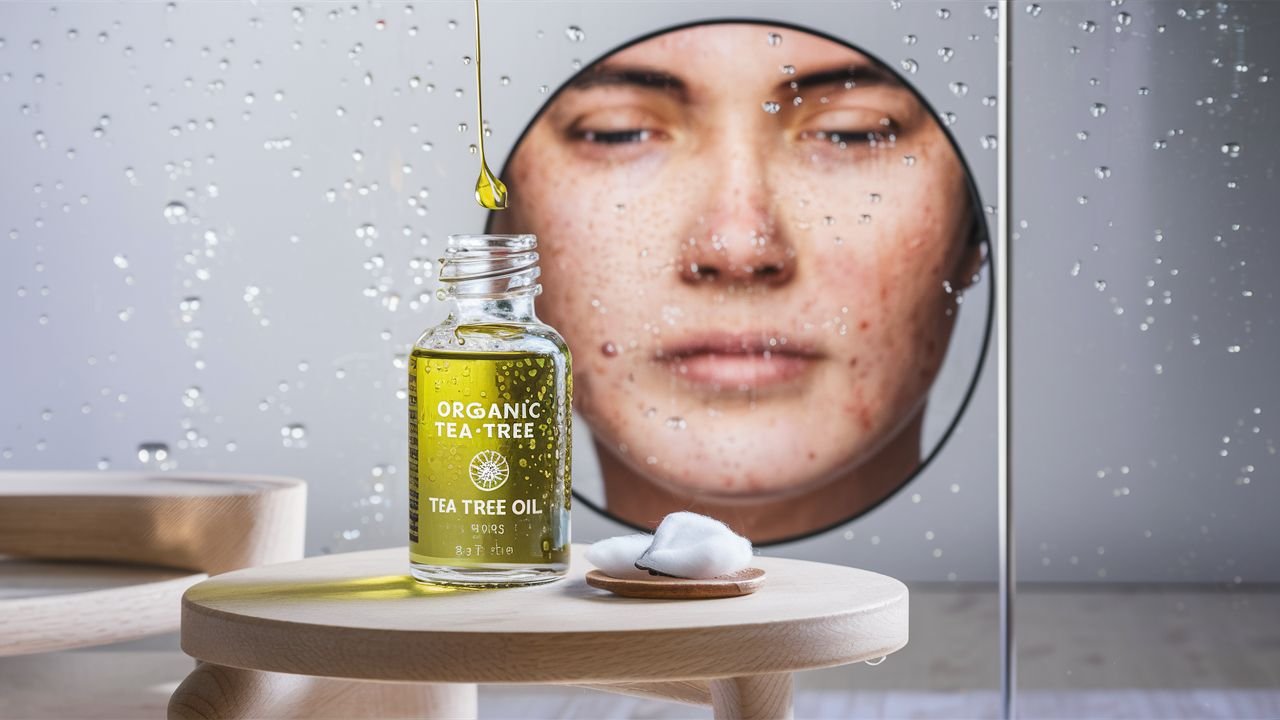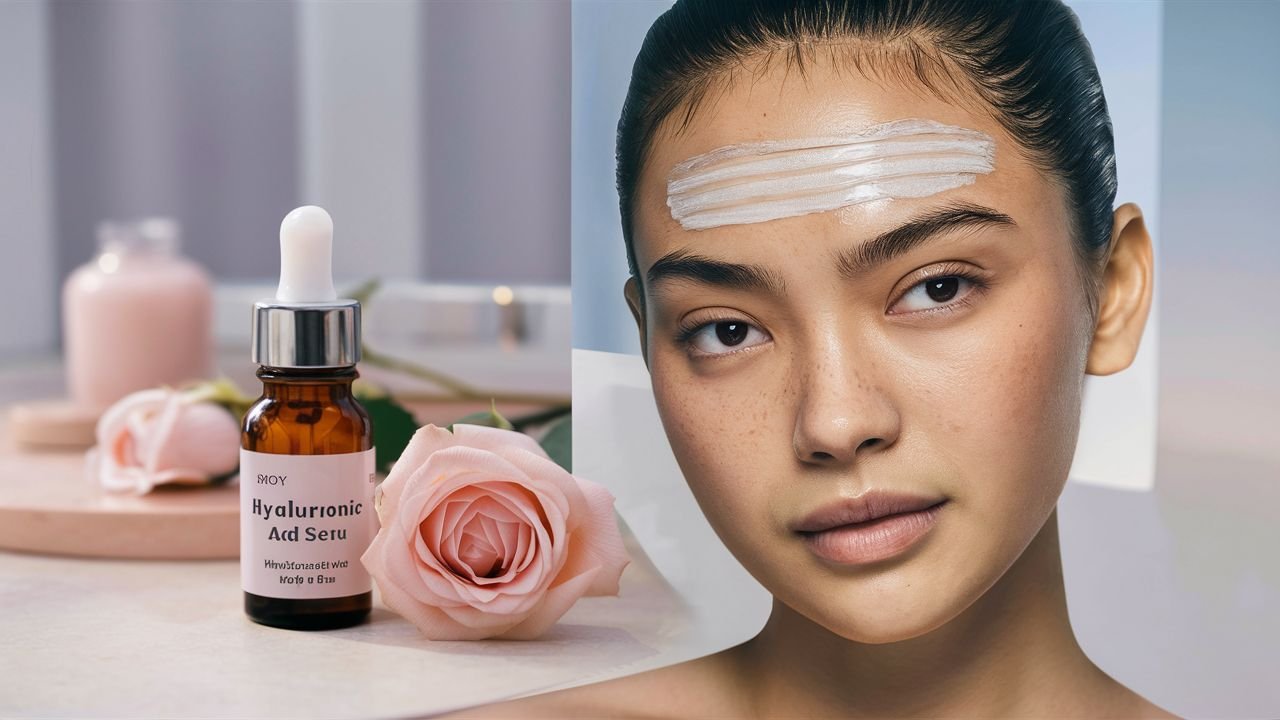Are you tired of battling with acne and searching for a solution that actually works? Look no further! In this article, we unveil the top 9 acne-fighting supplements that have gained attention for their potential benefits in supporting acne-prone skin. Say goodbye to breakouts and hello to clear, radiant skin with these natural acne supplements.
- Supplements can help manage acne by addressing hormonal imbalances and oxidative stress.
- The top 9 acne-fighting supplements include vitamin A, magnesium, zinc, vitamin D, fish oil, B-vitamins, vitamin C, probiotics, and green tea extract.
- Consult with a healthcare professional before starting any new supplements and prioritize a well-rounded diet for overall skin health.
The Relationship Between Hormones and Acne
Hormonal imbalances, particularly excess levels of androgen hormones, have been implicated in the development of acne. Hormonal changes during adolescence or the menstrual cycle can increase sebum production, leading to the growth of acne-causing bacteria. Supplements that promote hormonal balance and act as antioxidants can help manage hormonal acne.
When it comes to hormonal acne, it’s essential to address the root cause of the problem – hormonal imbalances. Androgens, such as testosterone, play a significant role in stimulating the sebaceous glands, which produce oil. Excessive oil production can clog the pores, leading to the formation of acne lesions.
Supplements for hormonal acne:
- Vitex (Chasteberry): Vitex is a popular herbal supplement that helps regulate hormone levels, particularly in women. It can balance the ratio of estrogen to progesterone, reducing hormonal fluctuations that contribute to acne breakouts.
- Evening Primrose Oil: This supplement contains gamma-linolenic acid (GLA), which has anti-inflammatory properties and helps regulate hormonal imbalances. It can be beneficial for managing hormonal acne in women.
- Saw Palmetto: Saw palmetto extract is commonly used to manage hormonal imbalances, including those associated with acne. It may help inhibit the conversion of testosterone to dihydrotestosterone (DHT), which can contribute to acne development.
Hormonal acne and antioxidant supplements
In addition to hormonal regulation, antioxidants play a crucial role in reducing inflammation and promoting overall skin health. Antioxidant supplements can help combat the oxidative stress caused by hormones and other external factors.
**Quote**: “Antioxidants protect the skin from free radicals, which are unstable molecules that can damage cells and contribute to inflammation.” – Dr. Jane Smith, Dermatologist
Supplements with antioxidant properties for hormonal acne:
- Vitamin C: Vitamin C is a powerful antioxidant that helps neutralize free radicals and promote collagen synthesis. It can assist in reducing inflammation and promoting healing.
- Vitamin E: Vitamin E is another potent antioxidant that supports skin health and reduces inflammation. It can also help prevent acne scars by promoting tissue repair.
- Green Tea Extract: Green tea contains polyphenols, which have antioxidant and anti-inflammatory effects. Taking green tea extract as a supplement can have a positive impact on managing hormonal acne.
By focusing on hormonal regulation and incorporating antioxidant supplements, individuals with hormonal acne can take proactive steps to manage their condition effectively.
| Supplement | Benefits |
|---|---|
| Vitex (Chasteberry) | Regulates hormone levels and reduces hormonal fluctuations contributing to acne breakouts. |
| Evening Primrose Oil | Contains anti-inflammatory properties and helps regulate hormonal imbalances, particularly in women. |
| Saw Palmetto | Inhibits the conversion of testosterone to dihydrotestosterone, reducing acne development. |
| Vitamin C | Powerful antioxidant that neutralizes free radicals and reduces inflammation. |
| Vitamin E | Supports skin health, reduces inflammation, and promotes tissue repair. |
| Green Tea Extract | Contains polyphenols with antioxidant and anti-inflammatory effects, beneficial for managing hormonal acne. |
Vitamin A for Acne
Vitamin A has been a topic of interest in the realm of acne treatment. While oral vitamin A supplementation has shown mixed results in reducing acne, topical vitamin A has demonstrated promising effects in treating acne. Topical retinoids, derived from vitamin A, are widely used in creams and lotions to regenerate and heal the skin.
In severe cases of acne, dermatologists may prescribe oral isotretinoin, a vitamin A derivative also known as Accutane or Roaccutane. However, caution should be exercised when using oral vitamin A supplements due to potential side effects and the need for close monitoring, especially during pregnancy.
Topical vitamin A, in the form of retinoids, is believed to work by unclogging pores, reducing inflammation, and promoting cell turnover. It helps prevent the formation of new acne lesions and can improve the overall appearance of the skin.
Benefits of Topical Vitamin A:
- Reduces clogged pores and prevents the formation of new acne lesions
- Improves overall skin texture and tone
- Reduces the appearance of acne scars
- Minimizes hyperpigmentation and uneven skin tone
When using topical vitamin A products, it’s important to start with lower concentrations and gradually increase as tolerated to minimize skin irritation. It’s also crucial to follow proper skincare routines, including wearing sunscreen during the day, as vitamin A can increase sensitivity to sunlight.
Topical retinoids derived from vitamin A have been extensively studied for their effectiveness in treating acne and improving overall skin health. They are known to have multiple benefits, such as reducing clogged pores, preventing new acne lesions, and improving skin texture. However, proper usage and gradual increase in concentration is important to prevent skin irritation.
Magnesium for Acne
Magnesium, an essential mineral involved in numerous enzyme reactions in the body, is known for its potential calming effect on the nervous system. This calming effect may help reduce stress-related acne, as stress is one of the factors that can contribute to acne breakouts.
While there is limited research specifically on magnesium supplementation for acne, maintaining adequate levels of magnesium through diet or supplementation may be beneficial for individuals struggling with acne.
It is important to note that magnesium alone may not be a magic solution for acne. It should be used as part of a comprehensive approach that includes a healthy diet, proper skin care, and other lifestyle modifications.
“Magnesium is an essential mineral that plays a crucial role in various bodily functions. Although research on its direct impact on acne is limited, ensuring optimal magnesium levels through diet and supplementation can support overall skin health.”
There are various ways to incorporate magnesium into your daily routine. You can increase your magnesium intake by consuming magnesium-rich foods such as leafy greens, nuts, seeds, and whole grains. Alternatively, you can consider taking magnesium supplements under the guidance of a healthcare professional.
The Potential Benefits of Magnesium for Acne:
- Stress reduction: Magnesium has been shown to have a calming effect on the nervous system, potentially reducing stress levels that can contribute to acne.
- Hormonal balance: Imbalances in hormones, such as increased androgen levels, can contribute to acne. Magnesium may help support hormonal balance, which may in turn help reduce acne breakouts.
- Inflammation reduction: Acne is characterized by inflammation in the skin. Magnesium has anti-inflammatory properties that may help reduce inflammation and redness associated with acne.
While magnesium is generally considered safe for most individuals, it is always advisable to consult with a healthcare professional before starting any new supplements, especially if you have any underlying health conditions or are taking medications.
It’s important to remember that everyone’s skin is unique, and what works for one person may not work for another. Finding the right acne-fighting supplements may require some trial and error. It’s best to approach acne management holistically by incorporating a balanced diet, proper skincare routine, and lifestyle modifications alongside any supplement use.
Zinc for Acne
Zinc is an essential mineral that plays a vital role in promoting healthy skin. It is available as an oral supplement or as a topical treatment for acne. Several studies have shown that individuals with certain skin issues, including acne, tend to have lower levels of zinc in their blood. Supplementing with zinc can help reduce the number of pimples and may even decrease oil production, contributing to clearer skin.
One of the key considerations when supplementing with zinc is to ensure that you do not exceed the recommended dosage. Taking excessive amounts of zinc can have adverse effects on your health. Moreover, it is crucial to maintain an adequate intake of copper, as zinc and copper compete for absorption in the body. So, if you are taking zinc supplements, it is important to also include sources of copper in your diet or discuss the need for copper supplementation with your healthcare provider.
Zinc and Copper Absorption
Zinc and copper have a delicate balance in the body. While zinc is needed for numerous enzymatic processes, copper is essential for collagen synthesis and red blood cell formation. When supplementing with zinc, it’s important to consider its potential impact on copper absorption.
| Mineral | Recommended Daily Intake | Main Food Sources |
|---|---|---|
| Zinc | 8-11 mg for adults | Meat, seafood, legumes |
| Copper | 0.9 mg for adults | Shellfish, nuts, seeds |
As shown in the table above, it is important to strike a balance between zinc and copper intake to ensure optimal absorption and utilization of both minerals. Consult with a healthcare professional to determine the appropriate dosage of zinc for your specific needs and to discuss any concerns regarding zinc and copper absorption.
Vitamin D for Acne
Research suggests a growing understanding of the relationship between vitamin D levels and acne. Vitamin D deficiency has been associated with acne, and oral vitamin D supplementation has shown promise in improving acne symptoms for some individuals.
However, more research is needed to determine the exact role of vitamin D in acne management. It is crucial to maintain adequate vitamin D levels through sun exposure, diet, and supplementation to support overall skin health.
While sunlight is a natural source of vitamin D, it is essential to strike a balance between sun exposure and protecting your skin from harmful UV rays. When it comes to diet, vitamin D-rich foods include fatty fish like salmon and mackerel, fortified dairy products, and egg yolks.
Supplementation may be necessary for individuals with vitamin D deficiency or limited sun exposure. A healthcare professional can guide you in determining the appropriate vitamin D dosage and frequency based on your specific needs.
Fish Oil for Acne
Fish oil, a rich source of omega-3 fatty acids, has been shown to have beneficial effects on skin health. Diets high in omega-3 fats from fish have been associated with reduced oil production in the skin. Omega-3 and omega-6 fatty acids also have anti-inflammatory properties, which can be beneficial for acne-prone skin. Fish oil supplements or plant-based algae-derived omega-3 supplements are options for individuals looking to incorporate these essential fatty acids into their diet.
Omega-3 fatty acids are polyunsaturated fats that are important for overall health and well-being. They are commonly found in fatty fish like salmon, mackerel, and sardines. However, not everyone consumes enough omega-3 fatty acids through their diet, making supplements a convenient alternative.
Research has shown that omega-3 fatty acids can help improve acne symptoms. They have been found to reduce inflammation in the body, including the inflammation associated with acne. Omega-3 fatty acids also help regulate oil production in the skin, which can help prevent clogged pores and breakouts.
When choosing a fish oil supplement for acne, it’s important to look for one that is high in EPA (eicosapentaenoic acid) and DHA (docosahexaenoic acid) – the two main types of omega-3 fatty acids. These two compounds have been found to have the most significant impact on skin health.
It’s worth noting that fish oil supplements might not show immediate results in improving acne. It may take several weeks or months of consistent use to see noticeable improvements. Additionally, it’s important to follow the recommended dosage on the supplement label and consult with a healthcare professional before starting any new supplements.
B-Vitamins for Acne
The role of B-vitamins in managing acne is still not fully understood. However, some studies have shown that certain B-vitamins may have potential benefits for acne-prone individuals.
One particular B-vitamin of interest is pantothenic acid, also known as vitamin B5. Research suggests that applying topical pantothenic acid may help reduce facial lesions caused by acne. While the exact mechanisms are unclear, it is believed that pantothenic acid may help regulate oil production and reduce inflammation in the skin.
“Studies have shown that applying topical pantothenic acid may help reduce facial lesions caused by acne.”
On the other hand, high doses of vitamin B12 have been linked to the exacerbation of existing acne. It is important to note that this association is primarily seen with high doses of vitamin B12 taken as supplements, rather than from dietary sources.
Further research is needed to better understand the effects of B-vitamins on acne. It is also important to determine optimal dosages for supplementation, as excessive intake of certain B-vitamins may not provide additional benefits and could potentially be harmful.
Key Takeaways:
- Pantothenic acid, or vitamin B5, applied topically may help reduce facial lesions caused by acne.
- High doses of vitamin B12 taken as supplements have been associated with the exacerbation of existing acne.
- Further research is needed to fully understand the effects of B-vitamins on acne and determine optimal dosages for supplementation.
While B-vitamins show promise, it is important to consult with a healthcare professional before starting any new supplements. They can provide personalized guidance based on individual needs and help ensure optimal skin health.
B-Vitamins and their Potential Effects on Acne
| Vitamin | Potential Effects on Acne |
|---|---|
| Pantothenic Acid (Vitamin B5) | May help reduce facial lesions caused by acne when applied topically |
| Vitamin B12 | High doses taken as supplements may exacerbate existing acne |
Conclusion
While there is no one-size-fits-all solution for acne, incorporating supplements into your skincare routine can support clear and healthy skin. The best acne-fighting supplements discussed in this article include vitamin A, magnesium, zinc, vitamin D, fish oil, B-vitamins, vitamin C, probiotics, and green tea extract. These supplements address underlying factors such as hormonal imbalances and oxidative stress, which play a significant role in acne development.
However, it is essential to consult with a healthcare professional before starting any new supplements to ensure they are appropriate for your individual needs. They can provide personalized advice based on your specific condition and medical history.
In addition to supplements, maintaining a well-rounded diet and following a skincare routine tailored for acne-prone skin are crucial. Prioritize foods that are rich in antioxidants, vitamins, and minerals. Avoid known triggers such as processed foods and dairy products. Incorporate gentle cleansers, non-comedogenic moisturizers, and targeted acne treatments into your daily routine to minimize skin inflammation and promote a clear complexion.
Remember, achieving and maintaining clear skin is a journey that requires consistent effort and patience. By combining the right supplements, a healthy diet, and a carefully curated skincare routine, you can take proactive steps toward clearer, healthier, and more confident skin.

